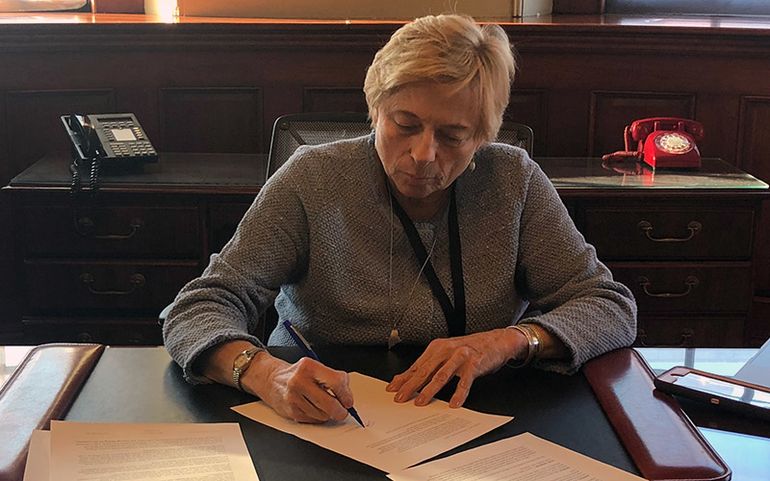Processing Your Payment
Please do not leave this page until complete. This can take a few moments.
- News
-
Editions
-
- Lists
-
Viewpoints
-
Our Events
-
Award Honorees
- 2025 Business Leaders of the Year
- 2025 Outstanding Women in Business
- 2024 Women to Watch Honorees
- 2024 Business Leaders of the Year
- 2023 NextUp: 40 Under 40 Honorees
- 2023 Women to Watch Honorees
- 2023 Business Leaders of the Year
- 2022 NextUp: 40 Under 40 Honorees
- 2022 Women to Watch Honorees
- 2022 Business Leaders of the Year
-
-
Calendar
-
Biz Marketplace
- News
- Editions
- Lists
- Viewpoints
-
Our Events
Event Info
- View all Events
- Outstanding Women in Business Reception 2025
- On The Road with Mainebiz in Bath
- 60 Ideas in 60 Minutes Portland 2025
- 40 Under 40 Awards Reception 2025
- On The Road with Mainebiz in Lewiston / Auburn
- + More
Award Honorees
- 2025 Business Leaders of the Year
- 2025 Outstanding Women in Business
- 2024 Women to Watch Honorees
- 2024 Business Leaders of the Year
- 2023 NextUp: 40 Under 40 Honorees
- 2023 Women to Watch Honorees
- + More
- 2023 Business Leaders of the Year
- 2022 NextUp: 40 Under 40 Honorees
- 2022 Women to Watch Honorees
- 2022 Business Leaders of the Year
- Nomination Forms
- Calendar
- Biz Marketplace
Mills launches Maine Climate Council, sets ambitious renewable energy goals
 Courtesy / Office of Gov. Janet Mills
Maine has joined the U.S. Climate Alliance, a bipartisan coalition of 21 states committed to reducing greenhouse gas emissions consistent with the goals of the Paris Agreement, Gov. Janet Mills announced at Friday's E2Tech 2019 conference.
Courtesy / Office of Gov. Janet Mills
Maine has joined the U.S. Climate Alliance, a bipartisan coalition of 21 states committed to reducing greenhouse gas emissions consistent with the goals of the Paris Agreement, Gov. Janet Mills announced at Friday's E2Tech 2019 conference.
Maine has joined the U.S. Climate Alliance, a bipartisan coalition of 21 states committed to reducing greenhouse gas emissions consistent with the goals of the Paris Agreement, Gov. Janet Mills announced at Friday’s E2Tech 2019 conference.
Mills also announced that her administration will introduce legislation to create the Maine Climate Council, which aims to help accomplish the goals of the alliance.
“While the federal government ignores its responsibility to combat climate change, Maine will work with states across the country to meet the goals outlined in the Paris Climate Accord,” Mills said in a news release.
Mills said the Maine Climate Council will be responsible for developing an action plan and a timetable to meet emission reduction goals and “to ensure that Maine’s communities and economy are resilient to the effects of climate change.”
The council will consist of commissioners and key state leaders, science and technical experts, nonprofit leaders, and representatives of climate-impacted industries. It will be established in statute, solicit public input and will report regularly to the public on progress toward goals.
It also will lead efforts to reduce Maine greenhouse gas emissions, Mills said regarding the goals of Maine achieving 80% renewable energy in its electricity sector by 2030 and 100% by 2050.
Mills said additional climate change initiatives will be announced in the coming months. Those initiatives will include improving Maine’s transportation sector, as well as energy and efficiency standards, she said. “We will mobilize state government to lead the way on energy conservation, weatherization and smart transportation measures.”
Mills: ‘Time for action is now’
In her prepared remarks for the E2Tech conference, Mills explained why it was important that Maine signed onto the U.S. Climate Alliance’s goal of reducing greenhouse gas emissions in the U.S. by at least 26% to 28% below 2005 levels by 2025:
- The Gulf of Maine is warming at a rate faster than 99% of the world’s oceans, driving lobster populations further up the coast.
- Coastal waters are growing more acidic, weakening the shells of lobsters, clams, scallops and oysters.
- Temperatures, along with Maine’s climate, are fluctuating more wildly, leading to increased tick populations, rising seas and natural disasters such as the Oct. 29-Nov. 1 2017, storm that caused nearly 500,000 power outages in the state. Tick-borne diseases are up nearly 700% from a decade ago.
- Black-capped chickadees are heading north and 92 species of wildflowers, including asters and lilies, and 16% of Maine’s native trees, including fir, were already disappearing as of 2014.
Mills characterized climate change as “one of the greatest threats ever faced by humans in modern times.”
“The threat will be met not by silver bullets of compulsion, but by actions taken promptly by all of humanity,” she stated. “In my administration you will always find a committed partner who shares your passion for tackling climate change and building a brighter, greener future for our state.”
Reaction to Mills’ initiatives
Julie Cerqueria, executive director of the U.S. Climate Alliance, agreed with Mills that climate change is “already impacting Maine’s communities and the Northeast region through extreme participation and coastal flooding.”
“Gov. Mills understands the urgency of this issue and by joining the U.S. Climate Alliance, she is setting the stage for Maine to lead on climate action through priorities like investing in local renewable energy production and enhancing the state’s natural and working lands.”
Dylan Voorhees, climate and clean energy director of the Natural Resources Council of Maine, applauded Mills for the commitments she announced at Friday’s conference.
“Many of the successful steps Maine has taken to reduce pollution have been done in cooperation with other states,” he stated in a news release. “From the Regional Greenhouse Gas Initiative to being one of 13 states with strong clean car standards, we stand strong together. Working together, the governor and Legislature can and must adopt tangible clean energy policies that result in major investments in our state and real, immediate benefits for Maine households and businesses.”










Comments